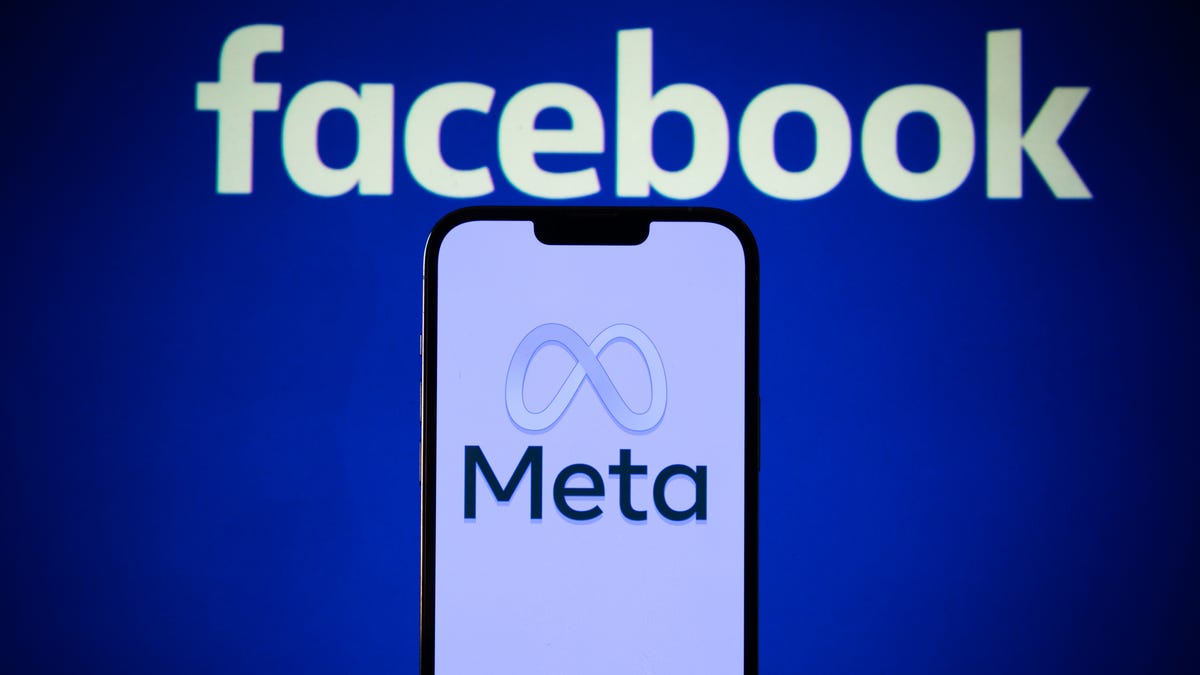Facebook, Instagram to Demote Content From Russian State-Controlled Media

Facebook renamed itself Meta in October.
What's happening
Facebook and Instagram, two huge social networks owned by Meta, are making it more difficult to find content from Russian-state owned media.
Why it matters
The company has been under pressure to combat disinformation and propaganda that Moscow is spreading on its platforms after Russia invaded Ukraine.
Facebook's parent company Meta said Tuesday it's demoting content shared by Russian state-controlled media outlets posted from their Facebook pages and Instagram accounts.
Since Russia's invasion of Ukraine last week, Meta has faced more pressure from governments including Ukraine to crack down on propaganda and false claims spread by Russian state-controlled media outlets. At the same time, Meta says it's trying to balance concerns about the spread of misinformation with freedom of expression.
The social media giant said it will also make content from those outlets tougher to find and demote posts globally that contain links to Russian-state controlled media on Facebook. Over the next few days, Facebook will label links and provide more information to people before they share them. The label says "This link is from a publisher Facebook believes may be partially or wholly under the editorial control of the Russian government." Meta also plans to put these measures in place on its photo and video service, Instagram. The company, which didn't provide many details about the demotion, said Russian state media content will not be recommended to its users as well. Facebook uses an algorithm to surface content it thinks is more relevant to its users higher in the social network's Feed.
Nick Clegg, who oversees global affairs at Meta and is a former UK deputy prime minister, said in a virtual press conference that people, including politicians such as Ukrainian President Volodymyr Zelenskyy, turn to social media during a crisis to protest and share what's happening in real time around the world. About 10% of people in Europe, and 4% globally have a Facebook friend in Ukraine, he said.
"We continue to work to make sure our services are available for people in the middle of this crisis. That is why we think it's important to make sure our services operate in Russia," he said.
Clegg said harsher restrictions aren't off the table but he emphasized throughout the call that Meta is not the government, but a private company that's responding to requests from governments.
"At the end of the day, the most powerful antidote to propaganda is not only restricting circulation, but circulating the answers to it. And that is why we always want to strike the right balance to allow the flow of counter speech to continue on our services," Clegg said.
On Monday, Meta said it will restrict access to Russian state-controlled media outlets RT and Sputnik across the European Union. The EU is an economic and political union of 27 countries, including France, Germany and Spain. The move came after European Commission President Ursula von der Leyen said in a tweet the EU's executive branch is developing tools to ban "toxic and harmful disinformation" published by RT and Sputnik and their subsidiaries.
Following Facebook's move, RT took issue with unspecified comments from European government officials and actions by social media platforms, with its deputy editor in chief saying in a statement that no one had pointed to specific evidence of falsehoods appearing on its site during the Ukraine crisis. In its own statement, Sputnik's press arm characterized the restrictions as an "information war against the Russian media."
Meta announced over the weekend it had restricted access to several accounts, including from Russian state-controlled media, in Ukraine following a government request.
Last week, Russia said it's partly restricting access to Facebook after the social network refused to stop fact-checking and labeling content posted on Facebook by four Russian state-owned media organizations. Russia's telecommunications regulator, Roskomnadzor, alleges Facebook violated "fundamental human rights" by restricting the country's state-controlled media.
Clegg said Russia's attempt to throttle its services have impacted video and other multimedia content but it's showing up differently on Facebook and Instagram. "The degradation of the service is definitely discernible," he said.
Meta's restrictions of Russian state-controlled media content could also prompt these outlets to spend more time on messaging services that are harder to moderate. Meta said the restrictions announced Tuesday don't apply to messaging service WhatsApp.
"It's an end-to-end encrypted platform so we don't have access to the content of these messages. We'll be continuing to monitor the situation and assess the way people are using the platform," said Nathaniel Gleicher, who oversees security policy at Meta, on the call.
RT has been directing followers to its channel on Telegram, another end-to-end encrypted messaging service.
Meta's remarks came on the same day that the company released its fourth-quarter report about how it enforces its community standards, which outlines what users aren't allowed to post on its platform such as hate speech and harassment.

